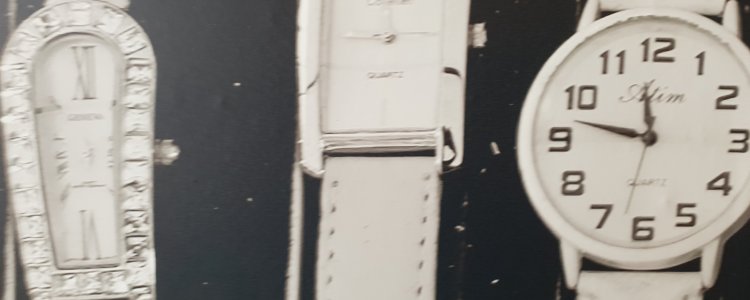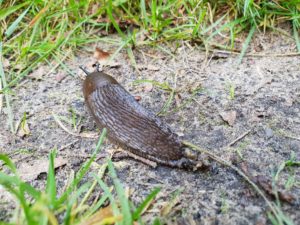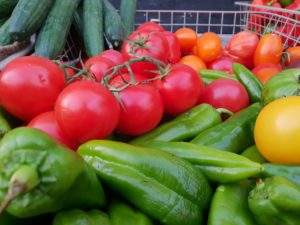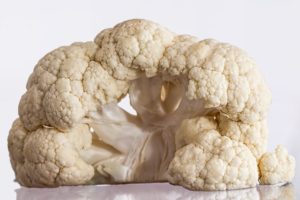Saving loads of time while learning is Dutch can be really simple. If you could just stop wasting time, then you are almost there…. If you like this idea, then continue reading… you’ll discover how to study less and have more fun as well 🙂
Imagine that you live in The Netherlands and that somehow you like the idea of speaking Dutch? Then what would you do? Well… in order to speak Dutch, you need to learn it first, right? So you may like the idea of signing up for a special course at a Dutch language school…
So here is another question. What would you prefer? To learn Dutch at a slow pace or to learn it really fast? Certainly if you do not have all the time in the world, learning loads of Dutch in the shortest time possible is a great option, right?
If your aswer to this question is yes, then here is something important to think about… How would you know that you are learning Dutch in an efficient way? Chances are high that – maybe without you realizing it – you chose the slow option, a path that I love to call the snail trail….
Too many people walk the path of the snail trail!
Here is the strange thing… even if you are learning at an extremely slow pace, chances are quite low that you recognize it. The problem is that once you’ll walk this slow path it will look very familiar to you. Certainly if you learned some other languages at school in the past, you’ll firmly believe that what you are doing is the right thing… By the way, what comes to mind if you think back of some moments in your past when you were learning other languages at school? Probably you’ll remember that you had to remember loads of stuff and that on top of it, you had to study really hard. Therefore chances are high that you tend to believe that now you’ll just have to repeat this same procedure again…
Let’s say that you live in the UK and that you like to learn French. What is then your biggest problem? My answer would be very simple. Your first problem is that you are not in France and that therefore all the information is entirely new to you. You do not see the information around you. So if you like to learn your first French words, then there is only one thing that you can do. Study hard and try to retain all that weird looking information…
Once you save loads of time while learning Dutch, you’ll the real things that really matter!
So now you go in French… You’ll learn the alphabet, you’ll learn how to count… Pas très simple, très difficile… If you are smart enough, then hopefully you would at least recognize some first words… simple – although the pronunciation is a bit different – and difficile has a clear relation with difficult of course. Although you’ll find some tricks that can make learning French a bit simpler, probably what you do is memorize and memorize… mon dieu!
However, whether you realize it or not, right now that you live in Holland, where they speak Dutch already, there is one big difference…. You are in the place where people speak the language, and this fact alone can radically change your whole approach to learning! This is the first important thing… why would you try to memorize things if all the information is available around you?
The first trick is that instead of memorizing stuff, you just recognizing things. Let’s say that you walk at de Bloemenmarkt in Amsterdam. Would it be difficult to imagine that markt could be market? And that bloemen are things that can bloom? If you are smart enough, you could quickly draw the conclusion that bloem is flower and that bloemen are flowers. Bloemenmarkt therefore means flowers market, of market of flowers. If you operate like this, then learning new stuff is quite easy, right?
Here is another important thing that you can do: Instead of complaining about the infamous so called difficulty of Dutch, you could also focus on all the regular stuff that Dutch has. One thing is spelling… The way that you write words, clearly shows you how you have to pronounce it. Once you master this skill, it simply means that you can see a word for the very first time and that you can clearly predict what the correct pronunciation is. On top of it, you could also discover quite quickly that Dutch is very close to English, so at least in 50% of all cases – with some practice – you can also predict meaning of many Dutch words in English.
The golden rule is very simple. Stop memorizing and… certainly do not study things that you could see in every day life! It is that simple. Unfortunately at many language schools they’ll give you huge vocabulary lists, often about only one topic. That is horrible, don’t you think?
One of my students told me that in her language class of 1 hour they were mainly talking about one thing… vegetables. So one by one they looked at all the words, while trying to remember all the different items. Don’t you think that this is really a waste of time? If you go to the shop, you can see all the vegetables with the corresponding names anyway. .. So once you grab some spinach in a real shop, just notice that in Dutch you call it spinazie. If you grab broccoli, then probably you’ll notice that the word is the same! Grab some tomaten and you’ll have the word for tomatoes. If you learn like things like this, it is also great for your health!
The way you look at vegetables can already make a huge difference!
Here is a thing that I would do… if I focus on vegetables, I would notice that the Dutch word is groente, so it has the word groen which means green. If you know other languages like Spanish, you’ll probably notice that with verdura – verde the system is exactly the same!
Then, if you grap cauliflower in a shop, you could see that they call it bloemkool and now if you play a bit, you could discover some interesting things. First of all, bloem is flower and kool is cabbage. The Dutch word is literally flowercabage and this also makes sense, right?
By the way, could you guess what boerenkool is? Maybe you know the word boer from South Africa and this means farmer. Farmercabbage does not make sense in English, but… don’t you think that kool also looks a bit like kale?
What do you really see here?
Another important tip is that you realize from the very beginning that most Dutch words can have multiple meanings. You already saw that kool can mean both cabbage and kale, and… there is another word…. It also looks like coal! That is why kool in Dutch can mean cabbage, kale and also coal! Yes… also Dutch people find this confusing sometimes, so that is why they also invented a very special word for coal…. According to Dutch logic, coal is like a stone and steen is stone… I hope that you can see that the word steenkool makes perfect sense!
Another thing that can help you to save loads and loads of time is that you realize that in Dutch you can use many words in all different kinds of expressions. For example, you could say: ik zit op hete kolen (I sit on hot coals). What do you think? Is it positive or negative? If you just use your intuitive mind, then it is easy to guess…. if you sit on hot coals then probably you try to jump away as soon as you can, right? Therefore, if you say: ik zit op hete kolen, it means that you are in a very uneasy situation and that you try to get out of it as soon as you can…
Here is another nice riddle… What do you think that steenkoolengels is? It is literaly stonecoal English…. Would you think that this is Shakespearian English? If you think logically, it is easy to find the right answer…. Steenkool komt uit een mijn (Coal comes from a mine) and mijnwerkers are mine workers…. So what would you think? Would they speak sophisticated English on a very high and advanced level?
You might here it from a Dutch person now and then: sorry voor mijn steenkoolengels... it is an apology of course… Steenkoolnengels is a lower form of communication, just enough to work with other people in a mine… But although the quality can be bad, it could open some doors to mutual understanding, certainly if all the people involved in a certain communication are willing to put in some effort…
The most important message is this: If you like to save loads of time and learn faster than you ever imagined, the first thing that you need to do is to play the role of an intelligent observer. You start to notice things and you learn how to draw the right conclusions. All it takes is a curious, playful and open mind and now that you observe in real life – instead of staring at a boring vocabulary list – you’ll notice how your Dutch world can open up fast!
That is why learning how to be a playful and intelligent observer is the most important thing that you need to do if you like to learn Dutch fast. Although it requires some intellectual capacities, you’ll notice that this way of learning is much richer than just using your mind. It is about really jumping in Dutch life and then once all the things that you discover are not just theoretical intellectual facts, but real things of your own personal life in Holland, then memorizing words will be a lot easier. And then, if you combine it with some other skills such as knowing how to put sentences together, great possible is possible within a very short time!








